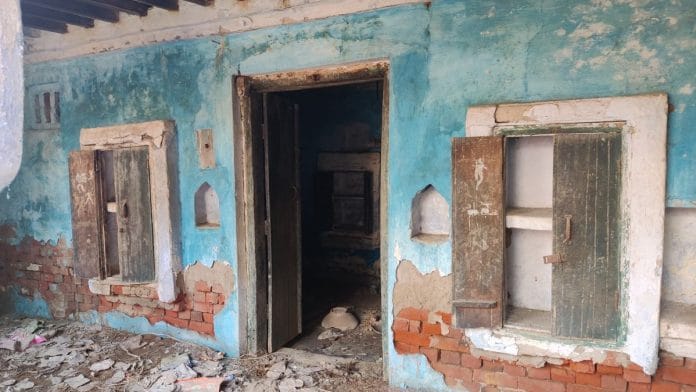Jaan Mohammad was walking in the Surajpur Court corridor when he heard something that left him in disbelief. It was the chatter in the courtroom corridors first, then came a WhatsApp forward at 4pm that made his worst fears true. The Uttar Pradesh government had filed a withdrawal application in the 10-year-old Akhlaq Ahmed lynching case. Panicked, he called his lawyer. But even he didn’t have any information.
Mohammad, 52, is Akhlaq’s younger brother.
“I have spent the entire weekend in fear, I spent my entire life fighting for my brother, to get him justice, what if they take the case back?” Jaan Mohammad said. “Only a few have shown the courage to fight the powerful, we were among them.”
Mohammad Akhlaq was killed by a mob in 2015 in his Greater Noida village Dadri. He was accused of slaughtering a cow and keeping its meat in his refrigerator. The mob lynching case shook north India. The case became the biggest face of a rising trend of cow vigilantes killing Muslims on the suspicion of slaughter and beef-eating. The incident split Akhlaq’s village, shook national politics, and set off a debate on hate crimes for years to follow. Ten years later, as the trial crawls and all 18 accused in the case roam free, the UP government’s decision to file a withdrawal application has left the deceased family anxious and in fear. Their decade-long quest for justice is jolted. Akhlaq’s killing had raised questions about the state’s role, and what justice meant for minorities who fought court battles for years.
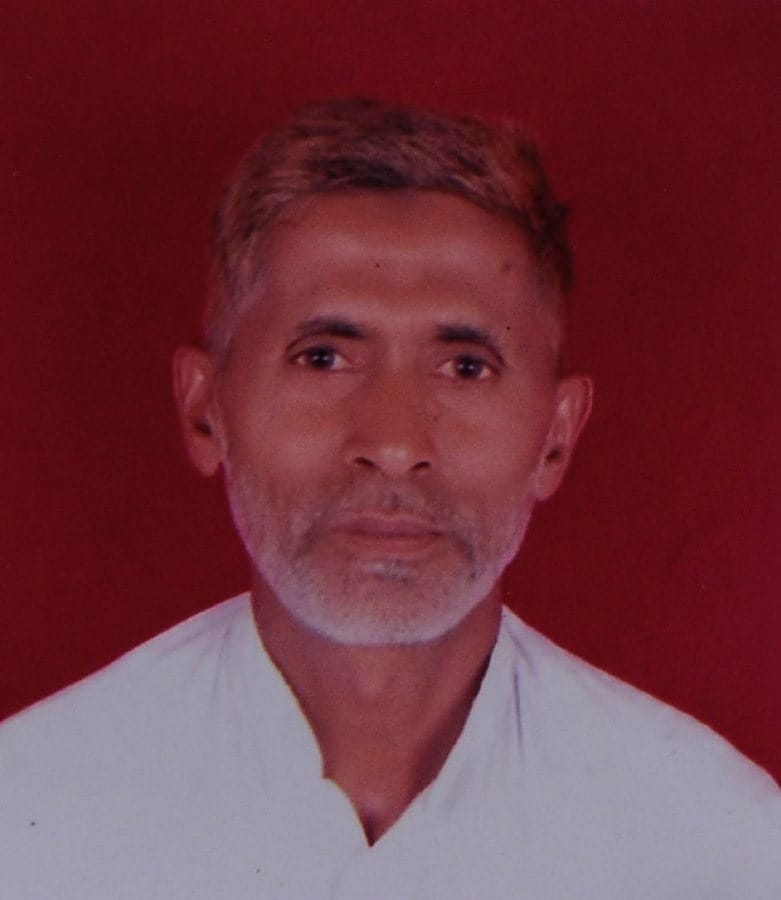
A decade hasn’t mended the divide between the villagers. There is an eerie silence that still grips the place. Here, Hindu and Muslim children don’t play cricket together.
“If the prosecution has asked to withdraw the case, and if the court gives consent to this withdrawal in public interest, it will set a scary precedent for many more cases of cow vigilantism where Muslims have been targeted,” said Swati Khanna, a criminal lawyer, who has represented individuals in Delhi Riots cases. “How can we give free hand to people who have lynched on the basis of religion?”
The govt counsel has given its reasons.
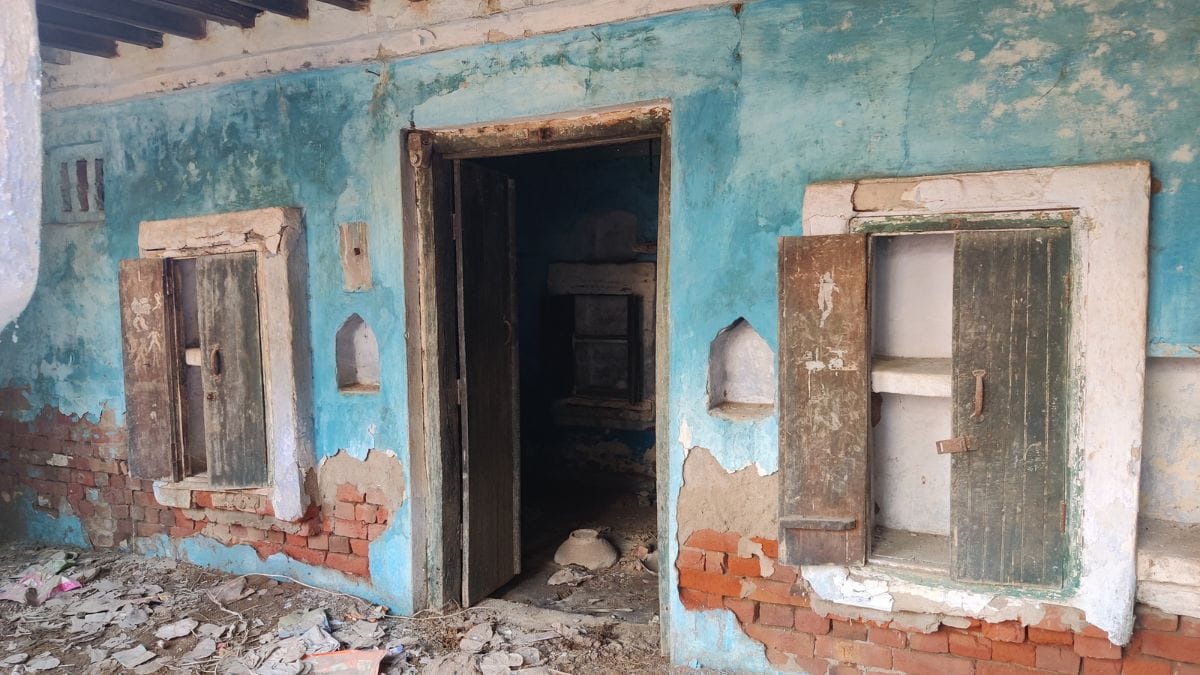
“We filed the withdrawal application, issued by the government in connection with Akhlaq Ahmed’s case, before the concerned court on October 15. The court is yet to pass an order on the application and December 12 is fixed as the date for hearing the matter,” said Bhag Singh Bhati, Additional District Government Counsel (ADGC), Gautam Buddha Nagar.
Also read: Delhi’s single women vs RWAs. Story of the new ‘problem tenants’
Where the village is now
A decade later, in Bisada, the village appears calm on a sunny winter afternoon as families continue to graze their cows and calves. In one corner of the village, Hindu and Muslim children play cricket in their respective communities. There is barely any intermingling. This is the same stretch where the mob ran towards Akhlaq 10 years ago. The village, which was largely covered in sugarcane fields, has now turned into a dusty town.
In its narrow lanes are houses with gates that remain open at all time. In these ten years, the divide between Hindus and Muslims has grown visibly, especially when it comes to the case. All 18 accused, including juveniles, belong to this village. Akhlaq was the neighbour many grew up with. Some called him a brother, an uncle for others.
Three houses away from Akhlaq’s house, lived Arun. He too was arrested in the case for being part of the mob that killed him. Arun’s house gates remain open. A joint family here has rehearsed a sentence for years: “Arun did not do anything. He was innocent.”
The family refused to explain why and how they know Arun was innocent.
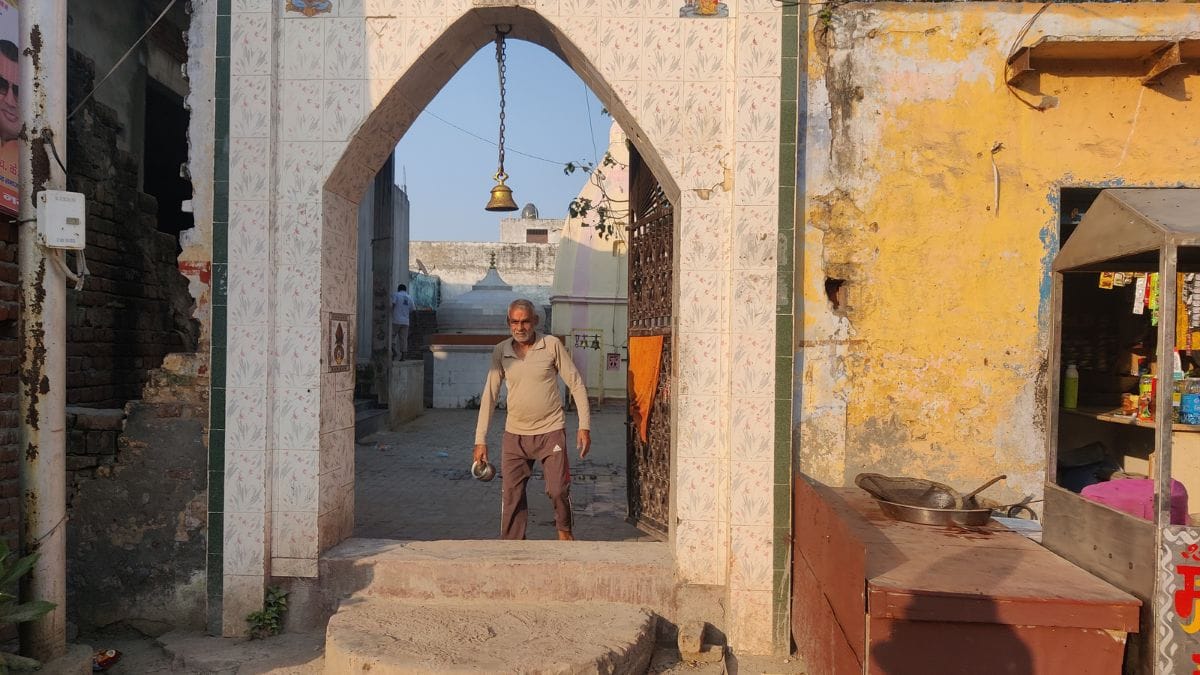
Standing under the sun, at her four-bedroom house, Arun’s wife, Rachna, 32, doesn’t want to revisit the September 2015 incident.
“It’s been a decade,” she says, in an annoyed tone. “My husband spent a year and a half in jail. Before that, he worked in a veterinary clinic, afterwards, he lost his job.”
Rachna is convinced that Arun was arrested on false charges, and that there was no evidence in their house.
“My husband did not kill Akhlaq, nobody can prove it, this case destroyed our life, what more does the media want?” she said, dismissing police investigations and news reports. She comes across well-rehearsed while speaking these lines.
Right in front of Arun’s house lives Sandeep. He, too, was involved in the alleged lynching of Akhlaq. While was out to get fertiliser for his farm, his mother, Kusum was slitting green chilis for achar for her son.
Sandeep was 18 when he was sent to jail. While the victim’s family has identified Sandeep as one of those in the mob, Kusum said, “he was sleeping the night the incident happened.”
He returned from jail after two years, unwilling to enter college, or work.
“I remember a loud noise from that night,” Kusum said, adding she was asleep when Akhlaq was murdered. “My son had a high fever, he did not kill anyone, he was framed.”
Kusum spent the next few weeks in September visiting police stations and explaining to the police that Sandeep had nothing to do with it.
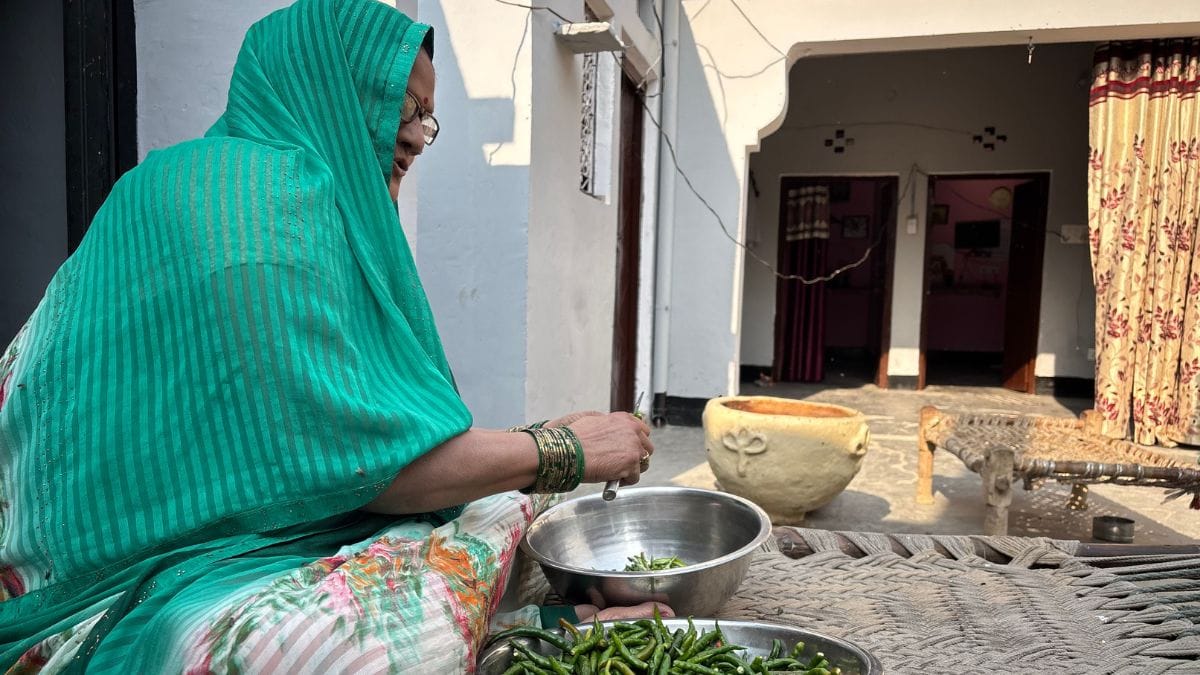
In the same breath she was defending her son, she also said “baalak se galti hojati hai.” But refused to dwell further.
Apart from Arun and Sandeep, several other accused are engaged in odd jobs, while some have tried making a political career out of it.
Rupendra Rao, one of the accused, contested general elections from Noida on a Uttar Pradesh Navnirman Sena ticket.
The accused persons were hailed as “gau rakshaks.”
Families in Bisada have restarted their lives. They have fields to work, machines to repair, and children to send schools to. But the case never left the narrow lanes. In the village, the chatter over rumours of Akhlaq and beef remains fresh. None, however, know where the investigation is.
For years, young men have avoided mentioning “Bisara” in job applications. Some say they were rejected outright if they wrote the village name. Residents say nearby villages started calling Bisara, “Akhlaq ka mohalla,” and “aparadhi ka gaon.” Many Hindu and Muslim families spent months living with their relatives outside Bisara, unsure of return after the communal tensions.
“Us hadse ke baad, har ghar mein rajneeti hone lagi,” said Ravi, 23, a college student, waiting at the pradhan’s office. Ravi has grown up hearing the stories of Akhlaq’s killing. The rumours have been carried for too long.
Sanjay Rana, 49, now an earthmover contractor, was pradhan of the Bisada Village between 2010 and 2016. During his tenure, he saw the village shift from a quiet neighbourhood to a politically charged one.
“When I got the news that somebody slaughtered a cow in Bisada, I was hoping the tension doesn’t escalate to riots,” Sanjay said. His house is 2 km away from the village.
By the time police arrived, a lot had changed.
Sanjay recalls at least 3,000 people on the ground, screaming, shouting, wailing. “The village became invisible. We managed to remove people, then we safeguarded Danish.
“The entire crowd was young, and they lost control, I had to calm them down, bohot akrosh tha,” he said.
Also read: Dementia wave is hitting Indian homes. Families are exhausted, healthcare unprepared
A brother’s fight for justice
For 10 years, Jaan Mohammad has built his life around court dates. While working as a senior technician at a private factory in Dadri, Jaan took routine leaves to show up at the hearings. He has lost the count. Some lasted for five minutes, while numerous others got postponed. He has never missed a date.
He recalled every detail of what transpired in 2015. The family had gathered to celebrate Bakr-Eid on 25 September. The house was full of people. But three days later, everything collapsed. Akhlaq’s family had to leave the house they were living in for generations. They left with whatever they could.
When a mob entered the lane after the announcement, it forced inside Akhlaq’s house, who, with his family, had finished dinner, and was going to sleep.
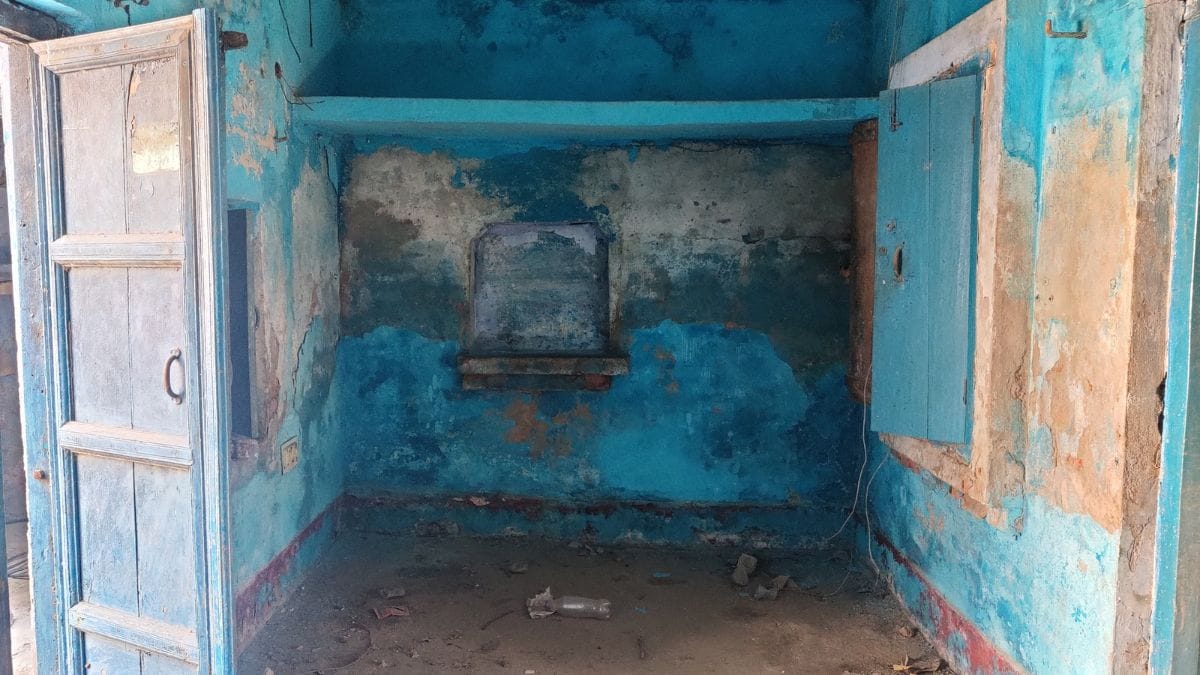
“The people who killed him were people we grew up with. They hit him, his wife, his son was dragged to the courtyard, my mother was locked inside a toilet, by the time I reached, everything was over. Akhlaq was gone.”
The killing changed the air of the village overnight.
“The village turned hostile, we were threatened, there were warnings, they told us we, too, will be lynched.”
On 17 October, the family collected money from relatives, packed what they could, and started living in rented rooms in Muradnagar, Ghaziabad.
“We were orphaned overnight.”
Fighting for Akhlaq isn’t a choice. It was a necessity for Jaan and his family. It would have been difficult for us to stay here, said Jaan. They took the legal fight immediately. “I did not know how the system worked, I fought and fought, but now, I fear, the system failed me, and many people like me.”
Jaan would spend hours waiting, arrange money for travel, photocopies of case documents running into hundreds of pages, and lawyer fees. In ten years, he has spent between Rs 8-10 lakh, most of it from savings and some borrowed money.
“We didn’t raise slogans, or protest on roads, or demand compensation. We did not draw attention,” he said. “We only wanted justice through law.”
The case has been added to their mundane lives, becoming part of their lives. And the family has given everything they could. But all these years later, Jaan still carries a regret—of not being by his brother’s side when the mob entered his home and lynched him.
“I should have taken the late night bus, and been at home. I could have fought the crowd. The last photo I have of Akhlaq is of his skull crushed. I told him Asailaium Walaikum. And he couldn’t respond.”
If this case is taken back, Jaan said, cases involving minorities will slowly be wiped away from the justice system. “Forgiving the accused will only encourage the next crime,” he said. “India has seen many Akhlaqs. Where do we stop?”
Also read: Sentenced to death by three courts. Nithari killings convict Surendra Koli, now free
The state’s legal view and the precedent
Inconsistencies in eyewitness statements where they have produced differing statements on the number of accused present is one of the reasons cited in the withdrawal application. The biggest reason is the view that the Constitution “provides equal protection to every citizen, regardless of whether they are plaintiff, plaintiff, or accused in any case.”
The application states that “As Indian citizens, everyone enjoys the protection of the Indian Constitution. Their rights are protected by the Honorable Court.”
The matter is currently pending before the Court of the Additional Sessions Judge, Fast-Track Court, Gautam Buddha Nagar.
The prosecution has also noted that “there is no evidence in the case diary” showing “any previous enmity or rivalry or hostility” between Akhlaq’s family and the accused.
The withdrawal application concluded that, “for the larger purpose of restoring social harmony” and in continuation of the Government Order dated August 26, 2025, issued by the Special Secretary, Justice Section-5 (Criminal), the state seeks withdrawal under Section 321 CrPC.
The prosecutor’s request does not automatically end the case. The Surajpur court is to independently determine whether the withdrawal is in the interests of justice, taking into account the stage of the trial and evidence already recorded. The Supreme Court, in rulings including Sheonandan Paswan, Rajender Kumar Jain and State of Punjab vs. Union of India, has repeatedly held that courts must ensure withdrawal is not an attempt to shield accused persons for political or extraneous reasons.
At the next hearing, the court may also hear objections from the complainant, victims, or any “person aggrieved.”
Akhlaq’s family has the right to oppose the withdrawal by filing a written objection before the Surajpur court. Courts have in the past refused state withdrawal moves in murder, rioting and communal violence cases after victims’ families objected.
Also read: Survival before justice and development. The long defeat of Bihar’s Muslim politics
A national headline
Akhlaq’s death turned into a national headline within days. Satellite vans blocked the narrow lanes for months. Politicians across party lines arrived in convoys. Photos were shared on Facebook and Instagram. Writers returned awards to protest the killing.
India had changed only a year earlier. Narendra Modi came to power in 2014, and for many, the incident marked the beginning of a new, sharper public conversation about cow vigilantism and Muslim identity.
Only weeks after the killing, Prime Minister Narendra Modi broke silence.
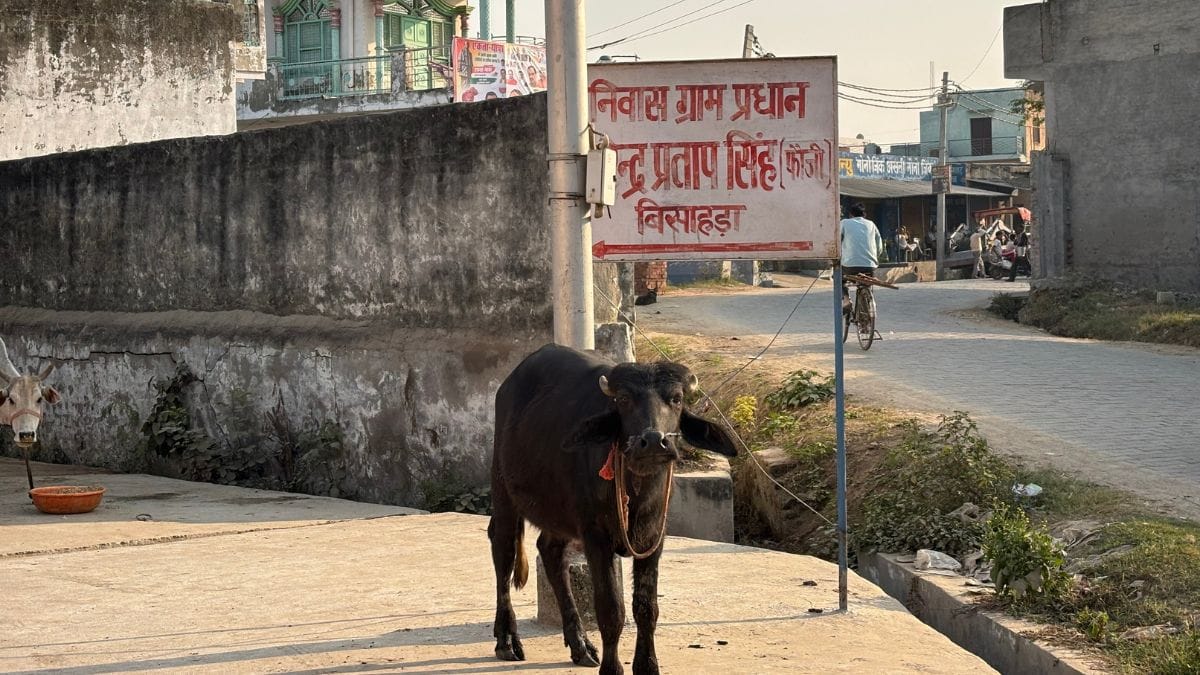
“Hindus should decide whether to fight Muslims or poverty. Muslims have to decide whether to fight Hindus or poverty. Both need to fight poverty together. The country has to stay united, only communal harmony and brotherhood will take the nation forward. People should ignore controversial statements made by politicians, as they are doing so for political gains,” Modi said, at an election rally in Nawada, in Bihar, in October, 2015.
Even the investigation has its own wounds. Inspector Subodh Kumar Singh, the first IO who led the early probe, was later killed in Bulandshahr violence. Today, his name brings silence at Dadri police station.
“Hogaye 10 saal us case ko, ab kya likhoge?” said a cop, with a smirk.
(Edited by Anurag Chaubey)



